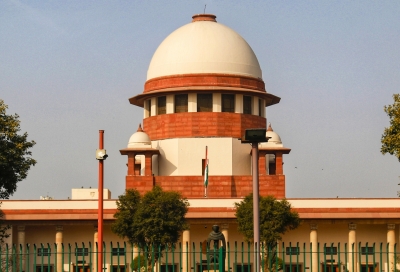New Delhi, April 4 (IANS) The Supreme Court has observed that undue sympathy to impose an inadequate sentence would do more harm to the justice system by undermining public confidence in the efficacy of law, while quashing a Punjab and Haryana High Court verdict, reducing the sentence to a man for causing death by rash and negligent driving.
It stressed that the financial loss, emotional and social trauma caused to a family on losing a bread winner, or any other member of the family, or incapacitation of the victim cannot be quantified.
A bench of Justices M.R. Shah and C.T. Ravikumar said: “Applying the law laid down by this court in the case of Surendra Singh to the facts of the case on hand, the impugned judgment and order passed by the high court interfering with the sentence imposed by the trial court confirmed by the first appellate court by showing undue sympathy to the accused is unsustainable and the same deserves to be quashed and set aside.”
The bench cited an observation made in a previous ruling of the apex court, which said that undue sympathy to impose inadequate sentence would do more harm to the justice system to undermine the public confidence in the efficacy of law.
Referring to the case at hand, the bench said while reducing the sentence, the high court has not at all considered the gravity of the offence and the manner in which the accused committed the offence and driving the Scorpio in rash and negligent manner due to which one innocent person lost his life and two persons who were travelling in the ambulance sustained the injuries.
The bench noted that from the impugned judgment and order passed by the high court, it appears that the case on behalf of the accused, that he is coming from a poor family, is considered as mitigating circumstance.
“The high court has not at all considered the fact that the IPC (Indian Penal Code) is punitive and deterrent in nature. The principal aim and object are to punish offenders for offences committed under IPC. Sections 279 and 304A can be invoked only if the act of the accused is negligent and rash,” said the bench.
Justice Shah, who authored the judgment on behalf of the bench, said: “With rapidly increasing motorisation, India is facing an increasing burden of road traffic injuries and fatalities. The financial loss, emotional and social trauma caused to a family on losing a bread winner, or any other member of the family, or incapacitation of the victim cannot be quantified.”
He added that the principle of proportionality between the crime and punishment has to be borne in mind and the principle of just punishment is the bedrock of sentencing in respect of a criminal offence.
The apex court delivered its verdict on an appeal filed by Punjab government challenging the high court judgment, which upheld the conviction of an accused for the offence under section 304-A (causing death by rash and negligent act) of the IPC. However, the court reduced the sentence from two years to eight months, subject to a prior deposit of Rs 25,000 towards compensation to be paid to the family of the deceased.
The top court noted that cogent reasons were given by the trial court which had sentenced the accused to two years in jail in the road accident, which occurred in January 2012 when a car driven by the accused hit an ambulance.
The apex court restored the sentence imposed by the trial court while allowing the Punjab government’s appeal, and it granted four weeks to the accused to surrender to undergo the remaining sentence.
–IANS
ss/vd






